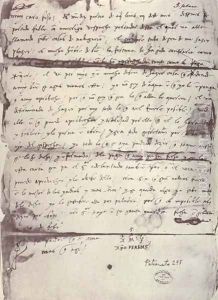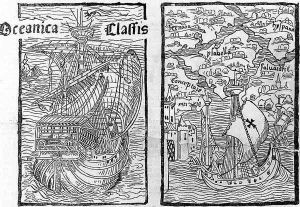Columbus, Christopher Paintings
Christopher Columbus, born in 1451 in the Republic of Genoa, now part of modern Italy, was a navigator and explorer whose voyages across the Atlantic Ocean, sponsored by the Spanish monarchs Isabella I of Castile and Ferdinand II of Aragon, opened the way for the widespread European exploration and colonization of the Americas. His expeditions, four in total between 1492 and 1504, marked the beginning of centuries of transatlantic conquest and colonization.
Columbus had a maritime background and a deep passion for finding a westward route to Asia to capitalize on the lucrative spice trade, challenging the then-dominant eastward land routes. Despite lacking a formal education, Columbus was learned, drawing on the knowledge of the time, such as works by Marco Polo and Ptolemy, to plan his voyages.
In 1492, Columbus set sail with three ships - the Niña, the Pinta, and the Santa María - and on October 12, reached the Bahamian islands, landing on an island he named San Salvador. Believing he had reached the East Indies, Columbus called the inhabitants 'Indians.' Over the course of his four voyages, he visited various Caribbean islands, the Gulf of Mexico, and the South and Central American coasts, but he never set foot on what is now the United States. His voyages not only opened up new lands to European exploration but also led to the Columbian exchange, which introduced new products and commodities between the New and Old Worlds, dramatically altering the global economy and ecosystems.
Columbus's legacy is complex. He is often celebrated for his maritime achievements and the courage of his explorations. However, his expeditions also ushered in centuries of exploration that led to the colonization and exploitation of the Americas and its indigenous peoples. The consequences of his voyages include the massive demographic change due to diseases introduced by Europeans, which decimated the native populations, and the beginning of the transatlantic slave trade.
Columbus died on May 20, 1506, in Valladolid, Spain, still believing he had found a new route to Asia. Over the centuries, his life and voyages have been the subject of much historical scrutiny and debate, reflecting the profound and lasting impact of his actions on world history.

